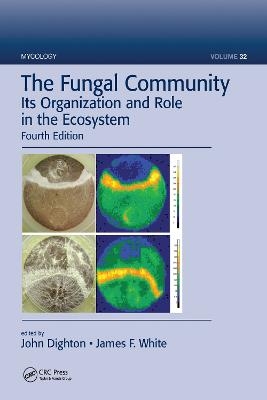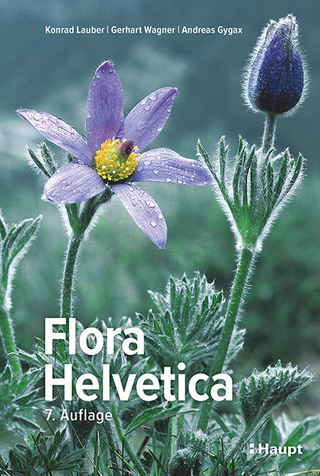
The Fungal Community
CRC Press (Verlag)
978-1-032-09717-6 (ISBN)
"…a number of chapters provide excellent summaries of the modern methods available for studying fungal ecology, along with those more traditional methods that are still extremely valuable…overall it is a hugely valuable compendium of fungal ecology research. It is a must for the library shelf."
-Lynne Boddy, Cardiff University, UK, Mycological Research, 2006
"These 44 chapters are an excellent starting point for anyone interested in fungal communities, in the broadest sense of the term. It is a book for dipping into…may be the last comprehensive treatment of fungal communities before the molecular revolution."
-Meriel Jones, University of Liverpool, UK, Microbiology Today
"… the scope of the work is tremendous. … Excellent chapters providing overviews of methods … provide a snap shot of the current approaches used to understand fungal communities at several levels of organization. This book should probably be on the shelf of every student of mycology, and many ecologists too. For all students, this book should be a valuable resource and source of inspiration."
-Daniel Henk, Imperial College Faculty of Medicine, London, in Inoculum, Vol. 59, No. 3, May 2008
"Thorough taxonomic and subject indices further aid the reader in navigating through multiple authors’ treatments of subjects of interest."
- Anthony Amend, Department of Botany, University of Hawaii at Manoa in Economic Botany, V. 61
In all subjects in science, new findings and the use of new technologies allow us to develop an ever-greater understanding of our world. Expanded and updated coverage in the fourth edition includes:
Adds new sections on Integrating Genomics and Metagenomics into Community Analysis, Recent Advances in Fungal Endophyte Research, Fungi in the Built Environment, and Fungal Signaling and Communication
Includes a broader treatment of fungal communities in natural ecosystems with in-depth coverage of fungal adaptations to stress and conservation
Expands coverage of the influence of climate change on fungi and the role of fungi in organically polluted ecosystems
Includes contributions from scientists from 20 nations to illustrate a true global approach for bridging gaps between ecological concepts and mycology
John Dighton, James F. White
Integrating genomics and metagenomics into community analysis. Changing the species concept. Molecular methods for fungal identification. Metagenomics, transcriptomics and proteomics. Recent advances in fungal endophyte research. Host switching and speciation in Cordicipitaceae. Endophytes and plant stress protection. Endophytes and defensive mutualism. Ecologies of endophytes (life styles of endophytes). Fungal communities in natural ecosystems. Terrestrial communities. Marine and Aquatic communities. Fungal Faunal Interactions. Below ground trophic interactions. Fungal propagule dispersal. Entomopathogenic fungi. Emerging fungal diseases. Bark beetle fungal interactions. Fungal communities and climate change and pollution. Climate change. Metal and organic pollutants. Invasive plant diseases. Fungal conservation. Harvesting practices and impacts. State of fungal conservation around the world. Fungi in the built envitonment. Decomposition of structures. Molds asthmas and allergies. Spoilage of human artefacts (paper, film etc.). Fungal communities in stresses environments (space station, Antarctic structures, etc.). Fungal signaling and communication. Mycorrhizal network as a communication system. Plant fungal communications. Plant animal communication. Fungal bacterial communication.
| Erscheinungsdatum | 01.07.2021 |
|---|---|
| Reihe/Serie | Mycology |
| Zusatzinfo | 72 Illustrations, color; 60 Illustrations, black and white |
| Verlagsort | London |
| Sprache | englisch |
| Maße | 210 x 280 mm |
| Gewicht | 1210 g |
| Themenwelt | Naturwissenschaften ► Biologie ► Botanik |
| Naturwissenschaften ► Biologie ► Genetik / Molekularbiologie | |
| Naturwissenschaften ► Biologie ► Mykologie | |
| Naturwissenschaften ► Biologie ► Ökologie / Naturschutz | |
| ISBN-10 | 1-032-09717-5 / 1032097175 |
| ISBN-13 | 978-1-032-09717-6 / 9781032097176 |
| Zustand | Neuware |
| Haben Sie eine Frage zum Produkt? |
aus dem Bereich


